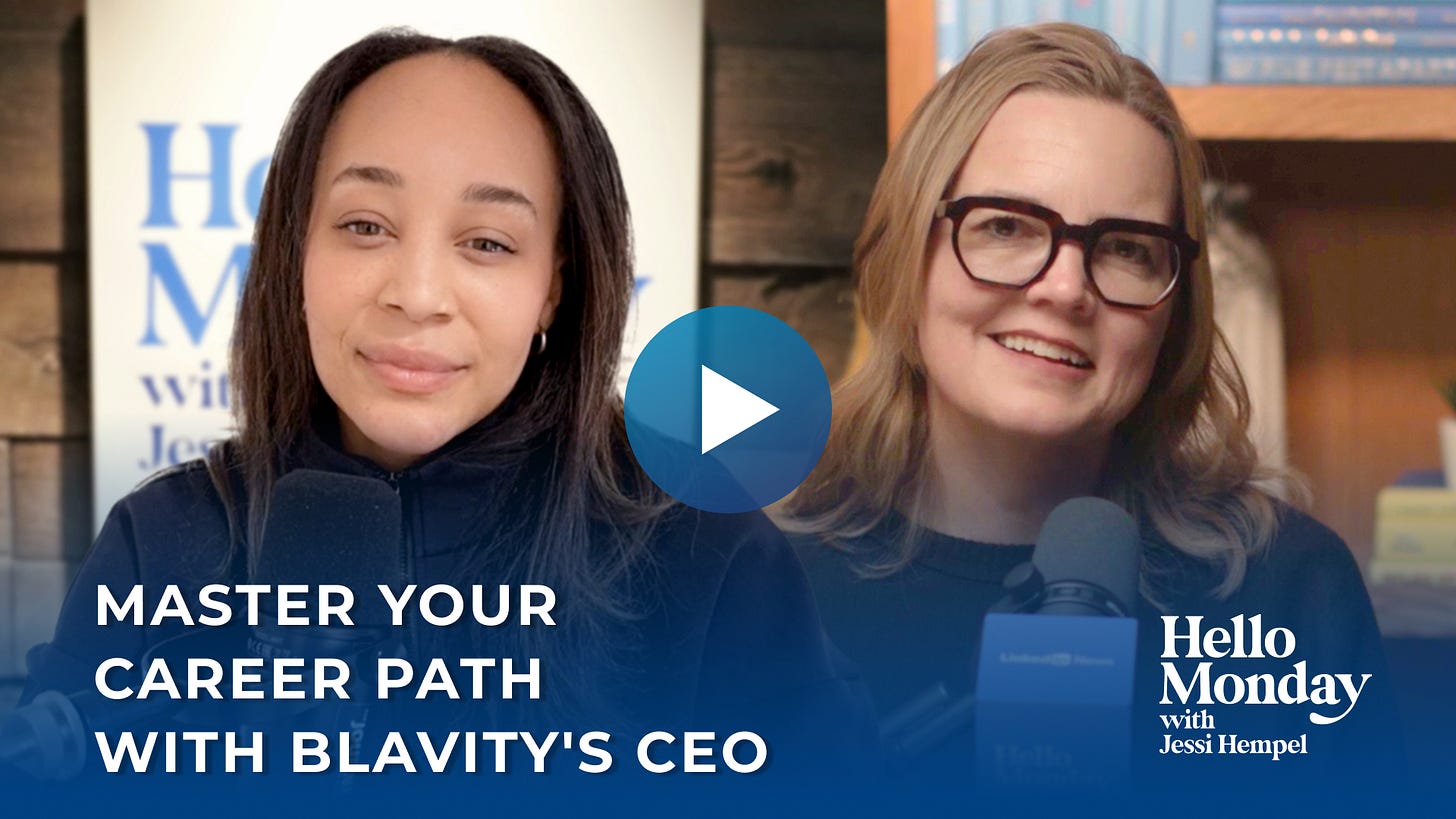This is the mindset that made this media CEO her millions
Morgan DeBaun on building Blavity, embracing failure, and rewriting the rules for success
One of the most powerful moments in my conversation with Morgan DeBaun was when she shared a tough call she had to make recently. She removed DEI and Black-centered language from Blavity’s pitch decks—not because she wanted to, but because the market had shifted. Her top priority was keeping her team employed.
“I don’t want to do this,” she remembers telling her team. “But I care about you. I want you to have a job. I’m good—I have stocks. You do not.”
It’s a complicated choice—and a reminder that leadership isn’t always about doing what feels comfortable. Sometimes, it’s about balancing your values with the realities of the world around you to make the best possible long-term impact.
🎧 Check us out on YouTube, Apple Podcasts or Spotify 🎧
Morgan possesses an honesty in her reflections born from experience. She helped launch Blavity, and two years later, introduced Afrotech, and has become a voice of leadership for Black entrepreneurs. But success has not come easily, and it hasn’t always been straightforward. Like many entrepreneurs, she has had to learn to make difficult decisions, to rank order her priorities and let go of beliefs that haven’t served her, to live her values. Her new book, Rewrite Your Rules, offers a roadmap for people who want to achieve success by thinking differently. There are some ideas you’ve heard before in this book, but I invited her into the studio for the ones that feel truly original. Consider the following:
Intentional plateaus: Morgan redefines plateaus, not as signs of failure or stagnation but as critical periods when deep change is happening. She emphasizes that these flat periods are necessary for establishing a new norm before the next leap in progress can occur. I feel this deeply. This perspective is a powerful reframe for those of us who might otherwise feel discouraged by a lack of immediate progress.
On failure: Morgan talks about the power of intentionally doing something you're bad at—whether it’s painting or gardening—as a low-stakes way to practice failure. Most people talk about trying to learn something new with a focus on learning that you *can* learn, but Morgan’s interested in exploring the feeling that comes from missing, failing, struggling, and being downright crummy at something.
The psychological impact of “step-change” growth goals: Instead of aiming for incremental improvements (like increasing revenue by 5%), Morgan suggests setting bold, ambitious goals (like doubling revenue) to fundamentally change your thinking and unlock bigger opportunities. This forces you to innovate instead of just refining what you're already doing, and it’s really in line with the vision exercise that we always do at the start of the year.
Safety nets: Morgan kept a day job while building Blavity, and later continuing consulting even after securing funding. This practical approach to balancing risk with security is especially relevant for underrepresented founders.
Leadership doubt and the importance of vulnerability
Even as a seasoned CEO, Morgan grapples with doubts about whether to keep pushing for growth or maintain the stability she’s built. By sharing her ongoing work with an executive coach and her willingness to express fear out loud, she models vulnerability as a leadership strength.A few more things I’m thinking about…
In the Gen X Career Meltdown, NYT writer Steven Kurutz tries to make sense of the experience of those of us who started in creative careers—magazine writers, anyone?—in the 90s. Says Kurutz: “Lessness has come to define their professional lives.” And that’s before we even get to AI.




